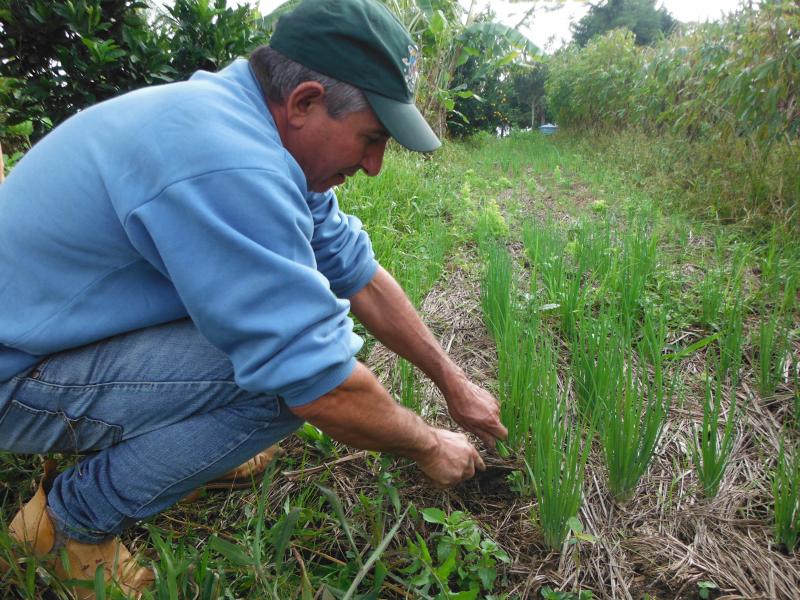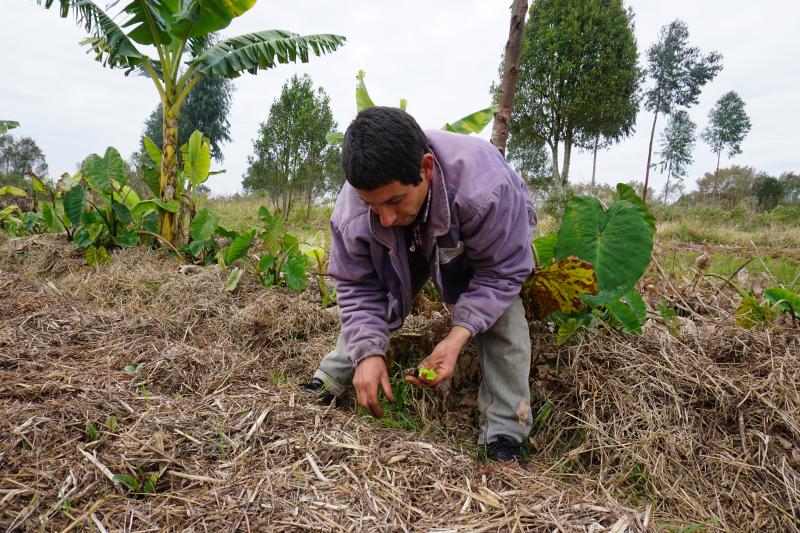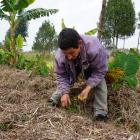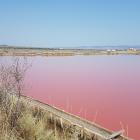Agroecology as a Way of Life (Brazil)
Claire Lagier
Lagier, Claire. Agroecology as a Way of Life. 2018. HD, 4 min. https://youtu.be/Mcm0VvSwsT4. Video editing by Miriam Remter and Felix Remter (Primate Visions, Munich). Dubbing by Daniel Dutra. CC BY 4.0.
This video shows six-year-old agroforestry projects in a land reform settlement in the state of Paraná, Brazil. This settlement was created in 2000 after a collective land occupation carried out by the Landless Workers’ Movement (MST). Two farmer-activists practice agroecology, productive agriculture that relies on diversity, small-scale cooperative labor, and working with ecosystem processes. It is a type of farming that mixes trees with diverse crops and animal production and avoids the use of agrochemicals and synthetic fertilizers.

An agroecological grower tending his agroforest area, May 2016. Photograph by Claire Lagier. CC BY 4.0.
An agroecological grower tending his agroforest area, May 2016. Photograph by Claire Lagier. CC BY 4.0.
Photograph by Claire Lagier.
 This work is licensed under a Creative Commons Attribution 4.0 International License.
This work is licensed under a Creative Commons Attribution 4.0 International License.
These farmers are members of a cooperative and sell their produce to public programs such as the Food Acquisition Program and the School Lunch (which allows schools to provide schoolchildren with free, nutritious lunches), and directly to private consumers in their region. Their production areas are certified organic through Rede Ecovida, a participatory network present in all of Brazil’s South. Owing to the current Brazilian political situation, the names and exact locations of the farmers are undisclosed.

An agroecological grower plants lettuce seedlings in straw-covered soil in Paraná, Brazil, June 2017. Photograph by Claire Lagier. CC BY 4.0.
An agroecological grower plants lettuce seedlings in straw-covered soil in Paraná, Brazil, June 2017. Photograph by Claire Lagier. CC BY 4.0.
Photograph by Claire Lagier.
 This work is licensed under a Creative Commons Attribution 4.0 International License.
This work is licensed under a Creative Commons Attribution 4.0 International License.
Agroecology is increasingly recognized worldwide as a practice to produce high-quality food in ways that help reproduce biodiversity and conserve natural resources, in contrast to conventional agriculture. According to rural social movements, it is a way of life that offers good living and working conditions to growers, provided that public powers support farm-level and food system-level transitions. Examples include facilitating market access, improving budgets for research and adapted technical assistance, improving access to secure land rights, and availability of adequate credit and subsidies.
About the author
Claire Lagier is a doctoral student at the Rachel Carson Center at the LMU Munich. Her doctoral research, funded by the Marie Sklodowska-Curie ITN fellowship ENHANCE (2015–2018), investigates how agroecology has gained legitimacy within a Brazilian social movement advocating for land reform, the Landless Movement (MST), whose leadership has been advocating for ecological production methods since the early 2000s. She has six years of experience teaching about and investigating Brazilian agro-environmental politics and social movements. She has worked for GRAIN, the research network which coined and investigates the phenomenon known as land grabbing, and is an editor for the online magazine Uneven Earth, which strives to bring insights from political ecology, environmental justice, and degrowth to the public in an accessible manner. Claire has a bachelor’s degree in International Studies and Political Science from Université de Montréal (2011) and a Master’s degree in Environmental Sciences from Université du Québec à Montréal (2014). In 2018, she was a visiting scholar at KTH Stockholm’s Environmental Humanities Laboratory.












